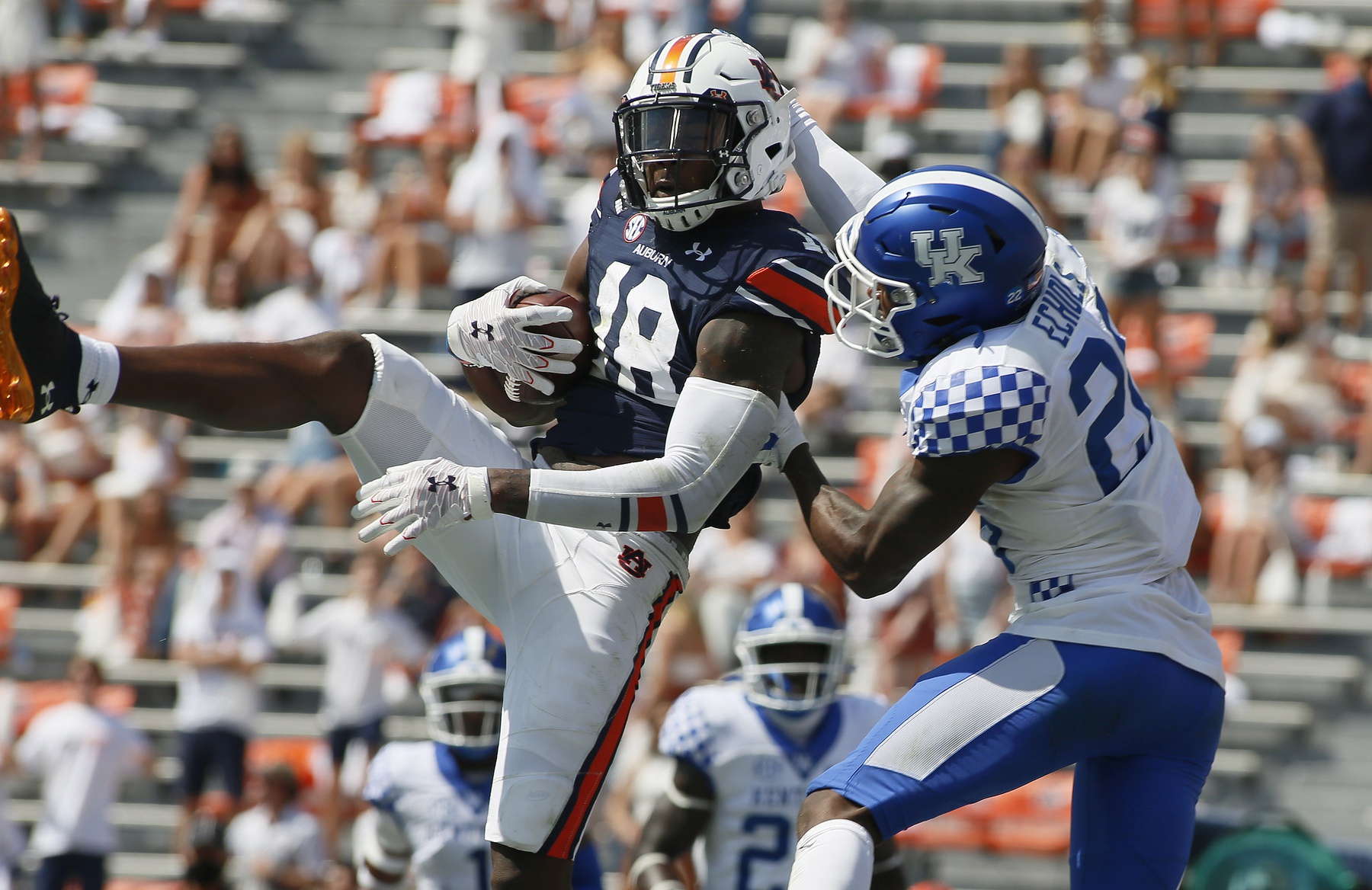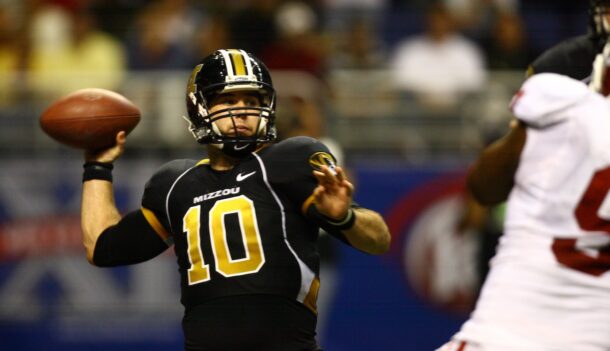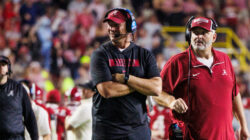
Survival of the Tiger: In a season that’s all about self-preservation, Auburn passes first test
By Phil Ervin
Published:
The end of the first half during Auburn and Kentucky’s COVID-dictated season opener Saturday was about as 2020 as it gets.
With 1:14 left in the second quarter, Wildcats running back Christopher Rodriguez Jr. appeared to cross the goal line for what would have been a go-ahead score. But the officials ruled him short, and two plays later, Tigers cornerback Roger McCreary picked off a Terry Wilson pass and took off the other direction for a 99-yard pick-6.
Only to have it negated by a targeting foul on Auburn’s Derick Hall.
It was a moment that left both Top 25 teams angsty heading into the locker room at Jordan-Hare Stadium. The kind that can turn a game on its head. The kind that leaves no one happy.
OK let’s step back for just a second. How incredible is to be dissecting a pivotal sequence in an SEC football game?
Let’s check in on Kentucky-Auburn…
-Looked like the Kentucky RB got in for the TD, refs ruled he was short…
-Kentucky throws a 100-yard pick six
-Personal foul penalty wipes out the pick six … we got to halftime with Auburn up 8-7 (watch the scoreboard at the end LMAOOO) pic.twitter.com/OaWes7NLte
— KÏŁŁÄ ČÄM (@FTBeard1) September 26, 2020
See, this year, as we’ve learned, is all about survival. And despite multiple hurdles to start this all-conference slate, one team — Auburn — passed the test in its 29-13 victory.
“They’re a good football team,” Tigers coach Gus Malzahn said in his postgame interview with the SEC Network. “They led the league in rushing last year, with four returning starters (on the offensive line). Third downs were the name of the game. They were 8 for 10 on third downs (in the first half). We corrected it; our guys fought hard, tackled well, too.”
Kentucky hung around till the Auburn defense forced 3 turnovers in the 2nd half to take control. The Tigers’ youthful offensive line — with 4 new starters — settled in to give Bo Nix time to either find receivers or scramble and sustain drives.
And with Hall ejected, an apparently less-than-100-percent Big Kat Bryant stepped in and shored up a pass rush that made life heck for Kentucky quarterback Terry Wilson.
Heading into the 4th quarter, this really could have been anybody’s game. Kentucky marched down the field on its first drive to go up 7-0, and Auburn answered in kind plus a two-conversion to take an 8-7 lead.
Not until Jamien Sherwood’s fumble recovery set up a 23-yard scoring drive early in the 4th did the Tigers — whom the SEC media picked to finish 3rd in the West Division — start to pull away.
In the first game of his sophomore season, Nix was reliable, if not spectacular. About half of his 233 yards passing went to receiver Seth Williams, whose 6 catches and 2 touchdowns rendered him the Week 1 hero for Auburn.
Nix even added a couple coffin-corner quick punts to help Auburn win the field position battle.
“I thought he performed very well, he made some great throws under duress,” Malzahn said of Nix. “I think our offense has great potential. A little bit rusty at times, but I think there’s great potential with that group.”
Mark Stoops’ bunch, meanwhile, has some questions to answer. The metrics from Wilson’s highly-anticipated return from a season-ending torn patellar tendon in 2019: 24-for-37, 239 yards, 1 interception and 2 lost fumbles.
Those turnovers and their consequences — along with those of a failed fake punt — might quell some of the preseason rumbling that UK could strike some fear into East favorites Georgia and Florida.
But the flow of a normal college football season is usually volatile. And this is anything but a normal set of circumstances.
Not that they were needed Saturday, but the reminders were everywhere. No traditional Tiger Walk. The War Eagle flew virtually. There were 17,490 fans, including the student section, spread out throughout the venue — the same scene unfolding in football stadiums all over the country.
This survival story goes back to the summer, when a COVID-19 outbreak caused coach Gus Malzahn to sit his team down and essentially tell them to start taking the virus seriously or take a hike somewhere else. Another wave came when students returned to campus earlier this month.
But Malzahn said his team was a full-go heading into Saturday.
So there was even an extra layer of meaning to Auburn’s “60 Minutes” helmet stickers and Malzahn’s garb of a ballcap, shirt and tie honoring former head man Pat Dye, who passed away in June. After more than two decades in charge of Auburn’s program, Dye retired to his farm in Notasulga, Alabama.
.@CoachGusMalzahn honors legendary @AuburnFootball coach Pat Dye in season opener. pic.twitter.com/TmOo9DH4E8
— SEC Network (@SECNetwork) September 26, 2020
The tillers and poultry farmers that help keep the Plains economy rolling — the cloth from which Dye was cut — know a thing or two about survival. After Saturday, Auburn does, too.
Until next week and a prime-time trip to Georgia.
Phil Ervin is a veteran college football writer with experience covering both the SEC and Big Ten.







